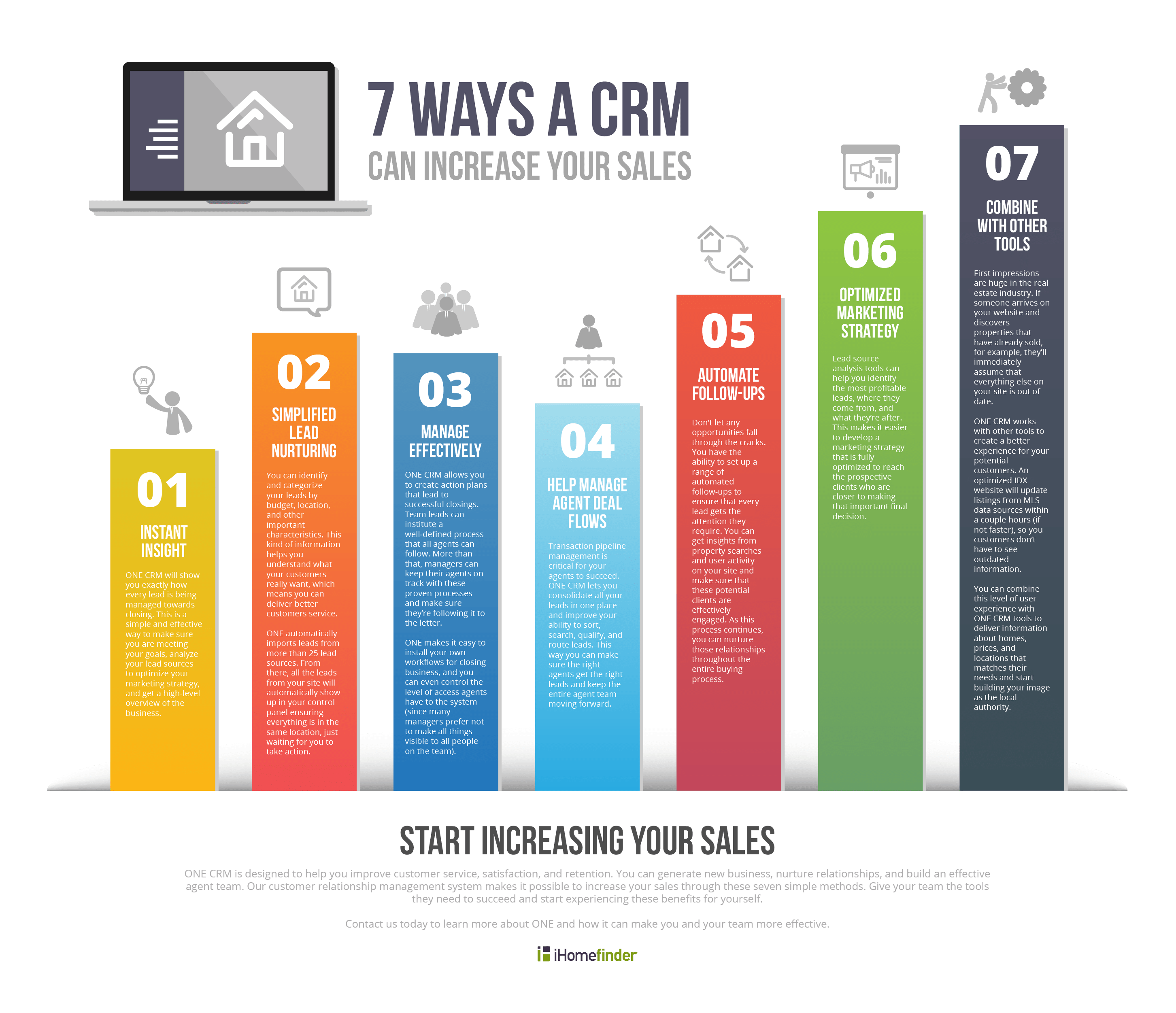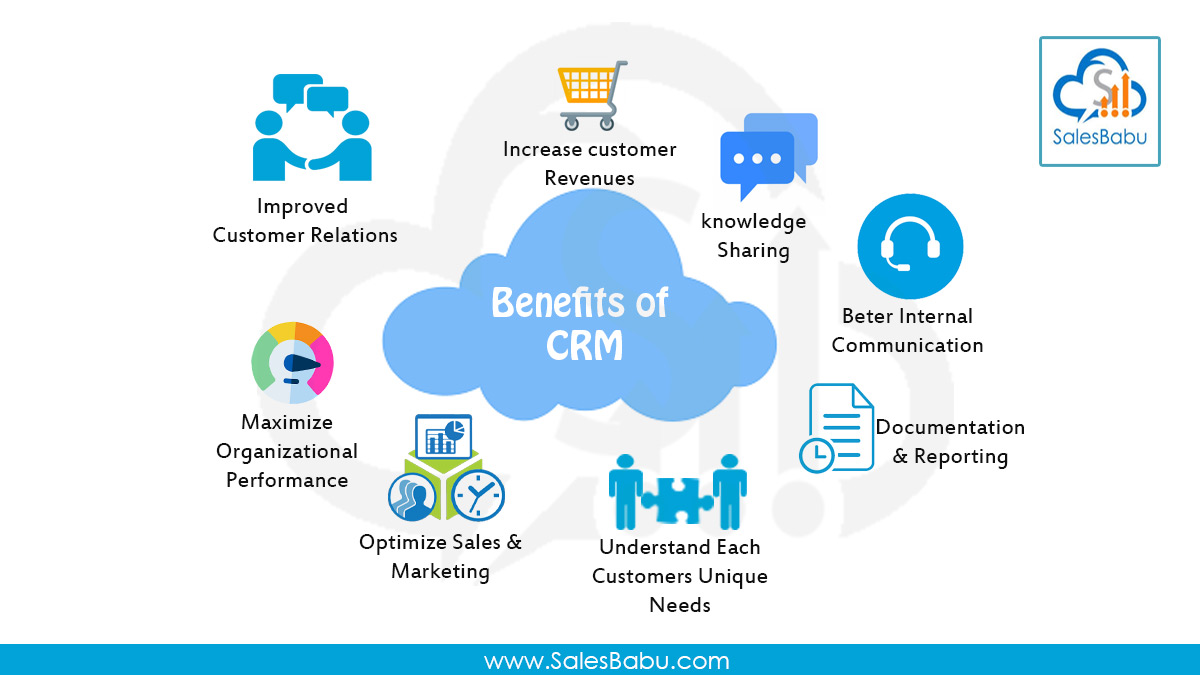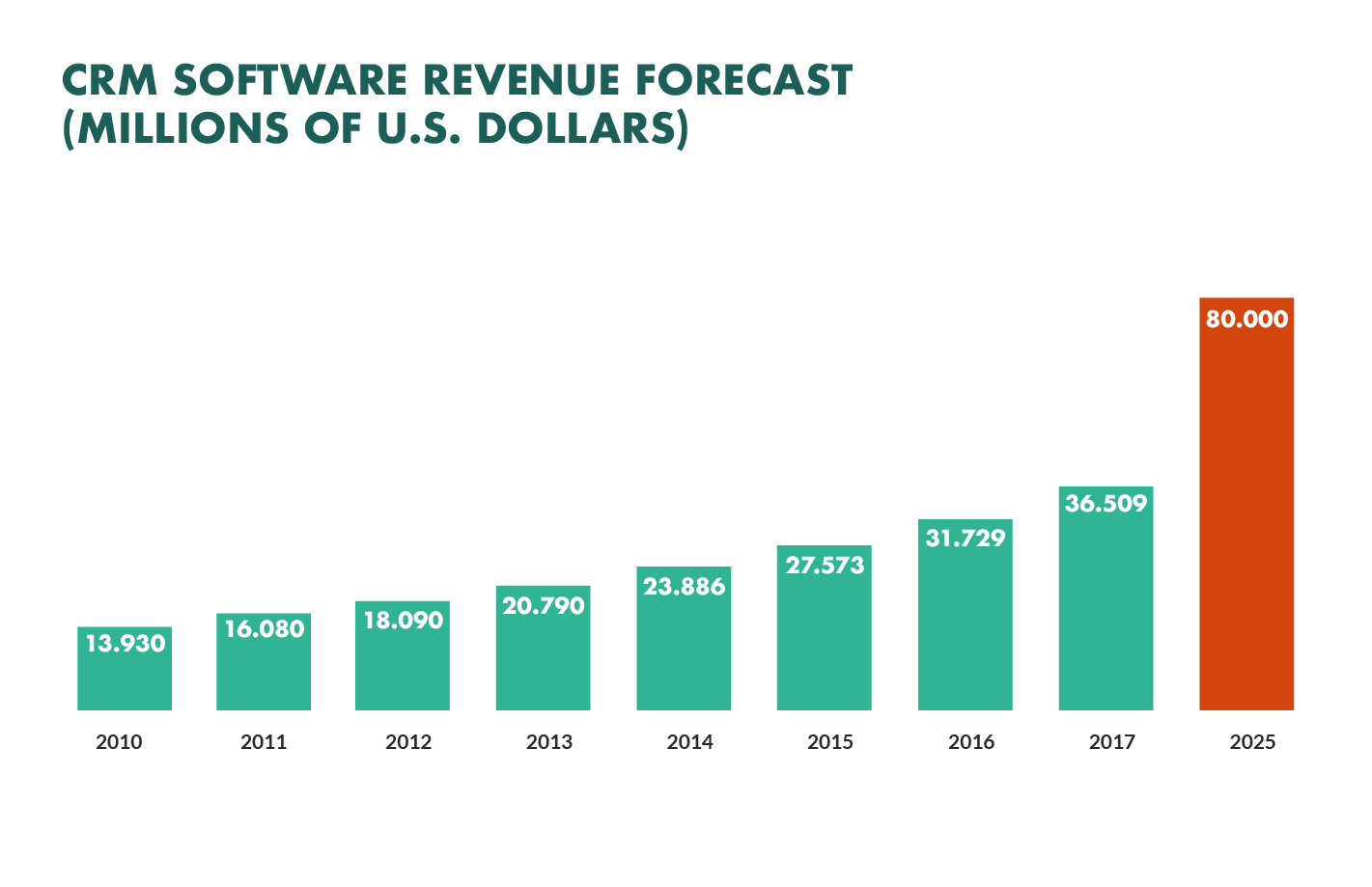In today’s competitive business landscape, companies are continually seeking ways to enhance their sales performance and stay ahead of the curve. One effective strategy is implementing a Customer Relationship Management (CRM) system, which has revolutionized the way businesses interact with customers and manage sales processes.
By leveraging CRM, organizations can streamline sales operations, gain valuable insights into customer behavior, and make data-driven decisions to drive revenue growth. As a result, CRM has become an essential tool for businesses aiming to optimize their sales performance and achieve sustainable success. Effective CRM implementation can significantly boost sales productivity.
Enhancing Sales Efficiency with CRM Systems
Implementing a Customer Relationship Management (CRM) system can significantly enhance sales performance by streamlining processes, improving customer interactions, and providing valuable insights.
A CRM system allows businesses to manage their sales pipeline more effectively, track customer interactions, and analyze sales data to make informed decisions.
Streamlining Sales Processes
A CRM system helps to automate routine sales tasks, such as data entry and follow-up emails, freeing up more time for sales teams to focus on high-value activities like building relationships and closing deals. By reducing administrative burdens, sales teams can concentrate on what matters most – selling.
Moreover, CRM systems enable businesses to standardize their sales processes, ensuring consistency across the team and making it easier to onboard new sales representatives.
Improving Customer Insights
CRM systems provide a centralized platform for storing customer data, enabling businesses to gain a deeper understanding of their customers’ needs and preferences.
By analyzing customer interactions and sales data, businesses can identify trends and patterns, allowing them to tailor their sales strategies to specific customer segments. This targeted approach can lead to increased sales conversions and improved customer satisfaction.
Enhancing Sales Forecasting
A CRM system can help businesses to improve their sales forecasting by providing real-time visibility into the sales pipeline. By analyzing sales data and tracking key performance indicators (KPIs), businesses can make more accurate predictions about future sales performance.
This enables them to adjust their sales strategies accordingly, ensuring they are well-positioned to meet their sales targets.
| CRM Benefits | Description |
|---|---|
| Automated Sales Processes | Reduces administrative tasks, freeing up time for sales teams to focus on high-value activities. |
| Improved Customer Insights | Provides a centralized platform for storing customer data, enabling businesses to gain a deeper understanding of their customers’ needs. |
| Enhanced Sales Forecasting | Provides real-time visibility into the sales pipeline, enabling businesses to make more accurate predictions about future sales performance. |
How does CRM help in making more sales?

Customer Relationship Management (CRM) is a strategic approach that helps businesses manage interactions with customers and potential customers. By implementing a CRM system, businesses can streamline processes, improve customer satisfaction, and ultimately drive sales growth.
CRM helps in making more sales by providing a comprehensive view of customer interactions, enabling businesses to identify new sales opportunities, and personalize their marketing efforts.
Enhancing Customer Insights
A CRM system provides a centralized platform to store customer data, including contact information, purchase history, and interaction records. This enables businesses to gain a deeper understanding of their customers’ needs and preferences.
By analyzing customer data, businesses can identify patterns and trends that inform their sales strategies.
- Identifying high-value customers and tailoring sales approaches to their needs
- Analyzing customer behavior to anticipate and respond to their needs
- Using data to create targeted marketing campaigns that resonate with customers
Streamlining Sales Processes
CRM systems automate many routine sales tasks, freeing up sales teams to focus on high-value activities such as building relationships and closing deals. By automating tasks like data entry and follow-up emails, sales teams can work more efficiently and effectively.
- Automating lead qualification and assignment to reduce manual errors
- Using sales analytics to track performance and identify areas for improvement
- Enabling sales teams to access customer information and history in real-time
Personalizing Customer Engagement
CRM enables businesses to personalize their interactions with customers, building stronger relationships and increasing the likelihood of sales. By leveraging customer data and insights, businesses can create targeted marketing campaigns and tailor their sales approaches to individual customers.
- Using customer data to create personalized marketing messages and offers
- Tailoring sales approaches to individual customers based on their preferences and needs
- Providing customer service teams with access to customer history and context to resolve issues effectively
What are the benefits of CRM system for sales?

The benefits of a CRM system for sales are numerous and can be transformative for businesses. A CRM system provides a centralized platform for managing customer interactions, sales processes, and data analysis.
This enables sales teams to streamline their workflows, improve customer engagement, and ultimately drive revenue growth.
Enhanced Sales Productivity
A CRM system automates many routine sales tasks, freeing up sales representatives to focus on high-value activities such as building relationships and closing deals. This leads to increased productivity and efficiency. Some key aspects of enhanced sales productivity include:
- Automated data entry and contact management
- Streamlined sales processes and workflows
- Real-time access to customer information and sales history
Improved Customer Insights
A CRM system provides a wealth of data and analytics on customer behavior, preferences, and interactions. This enables sales teams to gain a deeper understanding of their customers and tailor their sales approaches accordingly. Some key benefits of improved customer insights include:
- Data-driven sales strategies and decision-making
- Personalized customer engagement and communication
- Identification of new sales opportunities and potential upsell/cross-sell opportunities
Streamlined Sales Performance Management
A CRM system enables sales managers to track and analyze sales performance in real-time, providing visibility into sales pipeline health, conversion rates, and revenue forecasts. This enables data-driven decision-making and targeted coaching to improve sales performance. Some key aspects of streamlined sales performance management include:
- Real-time sales pipeline visibility and tracking
- Data-driven sales forecasting and revenue prediction
- Performance metrics and KPIs to measure sales effectiveness
How is sales effectiveness affected by CRM?

CRM, or Customer Relationship Management, has a significant impact on sales effectiveness. By implementing a CRM system, businesses can streamline their sales processes, improve customer interactions, and ultimately drive revenue growth. The effectiveness of sales teams is greatly enhanced by the data and insights provided by CRM, allowing them to make informed decisions and tailor their strategies to meet the needs of their customers.
Enhanced Sales Productivity
The automation of routine tasks and the provision of real-time data enable sales teams to focus on high-value activities such as building relationships and closing deals. With CRM, sales representatives can access customer information, track interactions, and analyze sales performance, all from a single platform. This leads to increased productivity and efficiency.
- Automating tasks such as data entry and follow-up emails
- Providing real-time visibility into customer interactions and sales performance
- Enabling sales teams to prioritize their efforts on high-value opportunities
Improved Customer Insights
CRM systems provide a centralized repository of customer data, allowing sales teams to gain a deeper understanding of their customers’ needs, preferences, and behaviors. By analyzing this data, sales representatives can develop targeted sales strategies and tailor their approach to individual customers. This leads to improved customer satisfaction and increased sales conversions.
- Analyzing customer data to identify trends and patterns
- Using customer insights to develop targeted sales strategies
- Personalizing the sales approach to individual customers
Data-Driven Sales Decision Making
CRM provides sales teams with access to accurate and timely data, enabling them to make informed decisions about their sales strategies. By analyzing sales performance data, sales representatives can identify areas for improvement and adjust their approach accordingly. This leads to improved sales performance and increased revenue growth.
- Analyzing sales performance data to identify trends and areas for improvement
- Using data to inform sales strategies and adjust the sales approach
- Tracking key performance indicators to measure sales effectiveness
How much does CRM increase sales?

The implementation of a Customer Relationship Management (CRM) system can significantly impact sales performance. Studies have shown that CRM can increase sales by 29% and improve sales forecasting by 42%. The exact increase in sales depends on various factors, including the type of CRM system, the industry, and the company’s specific sales processes.
Benefits of CRM on Sales
A CRM system provides numerous benefits that contribute to increased sales. It enables businesses to better understand their customers, personalize their interactions, and streamline their sales processes. By leveraging these benefits, companies can improve their sales performance and drive revenue growth.
Some key advantages of CRM on sales include:
- Enhanced customer insights and profiling
- Improved sales forecasting and pipeline management
- Streamlined sales processes and automation
Impact of CRM on Sales Team Performance
The implementation of a CRM system can have a significant impact on sales team performance. By providing sales teams with real-time customer data, CRM enables them to make informed decisions and respond promptly to customer needs. This, in turn, can lead to improved sales performance and increased revenue.
Some ways CRM affects sales team performance include:
- Providing real-time access to customer data and sales history
- Enabling sales teams to track customer interactions and analyze sales performance
- Facilitating collaboration and communication among sales team members
Measuring the Effectiveness of CRM on Sales
To determine the effectiveness of CRM on sales, businesses need to track key performance indicators (KPIs) and analyze sales data. By monitoring metrics such as sales revenue, conversion rates, and sales cycle length, companies can assess the impact of CRM on their sales performance.
Some essential metrics for measuring CRM effectiveness on sales include:
- Sales revenue growth and conversion rates
- Sales cycle length and pipeline velocity
- Customer acquisition costs and customer lifetime value
Frequently Asked Questions
What is the primary role of CRM in enhancing sales performance?
CRM plays a crucial role in enhancing sales performance by providing a centralized platform for managing customer interactions, tracking sales activities, and analyzing customer data. It enables businesses to streamline their sales processes, identify new opportunities, and make informed decisions. By leveraging CRM, sales teams can focus on high-value activities, improve customer engagement, and ultimately drive revenue growth.
How does CRM help in identifying and pursuing new sales opportunities?
CRM helps businesses identify and pursue new sales opportunities by providing real-time insights into customer behavior, preferences, and needs. It enables sales teams to track customer interactions, analyze sales data, and identify patterns and trends. With this information, sales teams can develop targeted sales strategies, personalize their approach, and engage with customers at the right time to maximize conversion rates.
Can CRM integration with other business tools improve sales performance?
Integrating CRM with other business tools, such as marketing automation and customer service platforms, can significantly improve sales performance. This integration enables businesses to access a unified view of customer data, streamline processes, and automate tasks. As a result, sales teams can respond quickly to customer inquiries, capitalize on new opportunities, and deliver a more personalized customer experience.
What are the key metrics to measure the impact of CRM on sales performance?
To measure the impact of CRM on sales performance, businesses should track key metrics such as sales revenue, conversion rates, sales cycle length, and customer satisfaction. By monitoring these metrics, businesses can assess the effectiveness of their CRM strategy, identify areas for improvement, and make data-driven decisions to optimize their sales processes and maximize ROI.


